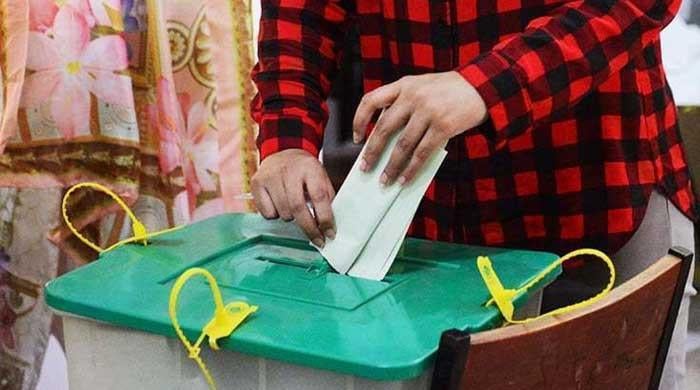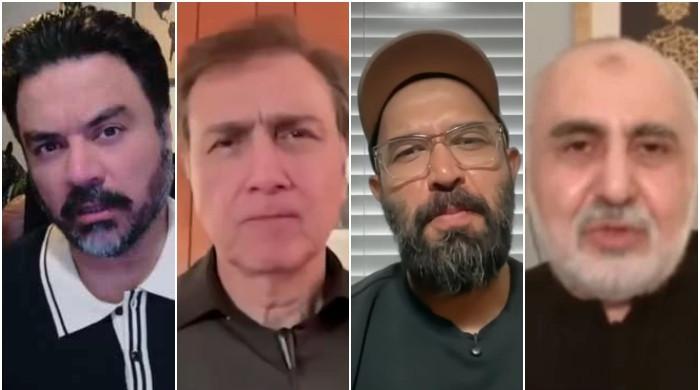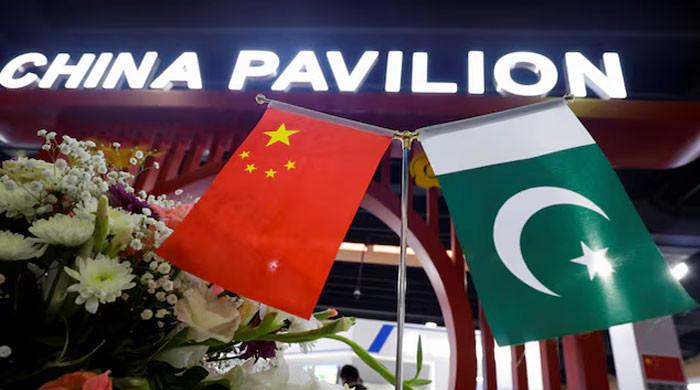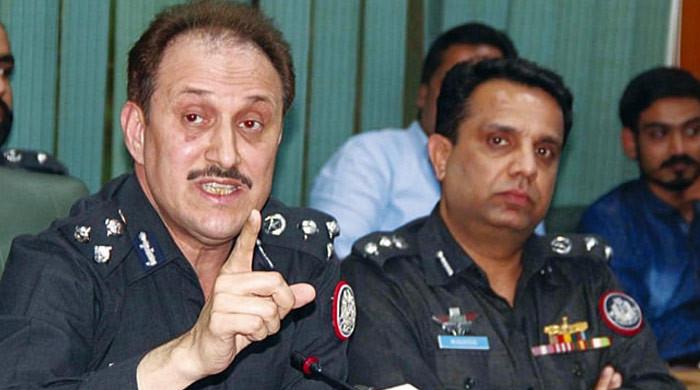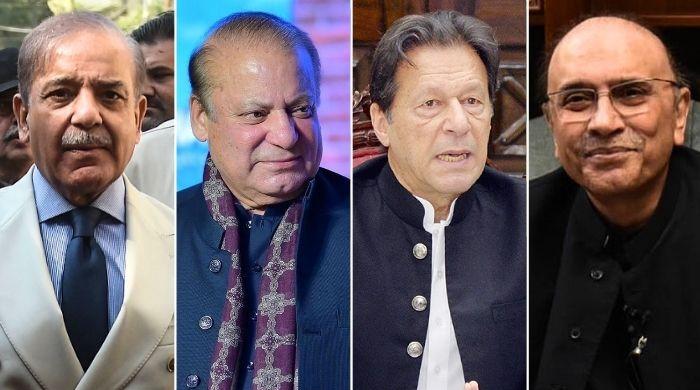Chaudhry Nisar unable to take oath as member of Punjab Assembly
I had won the election on the provincial assembly seat in the 2018 general elections by a lead of 34,000, says Nisar
May 24, 2021
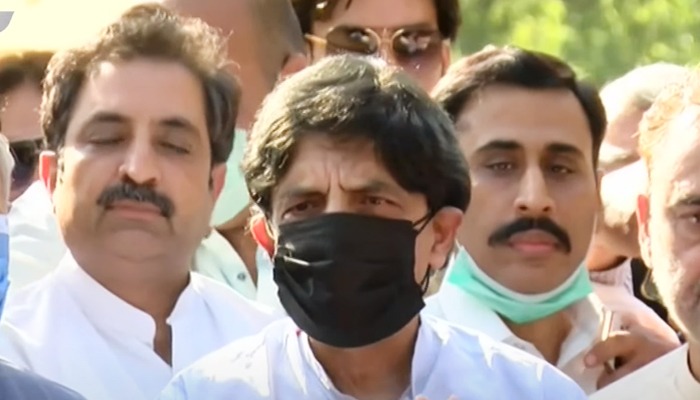
- Chaudhry Nisar Ali Khan says he is not part of any political game but decided to take the oath because of political development.
- Says govt plans to introduce an ordinance that eyes disqualification of members.
- Says the qualification and disqualification of members are included in the Constitution of Pakistan.
Former interior minister Chaudhry Nisar Ali Khan on Monday could not take an oath as a member of the Punjab Assembly.
Chaudhry Nisar reached the Punjab Assembly after three years to take the oath for the assembly's membership but could not do so due to the "absence of the speaker and deputy speaker."
Speaking to the media as he arrived to take oath as a lawmaker in the Punjab Assembly, he said that the day for his oath-taking was fixed but he was later informed that swearing-in was not possible in the absence of the speaker and deputy speaker of the assembly.
"As you all know, I had won the election on the provincial assembly seat in the 2018 general elections by a lead of 34,000," said Nisar.
"I had decided to take oath after a political development took place. The government plans to introduce an ordinance that eyes disqualification of members; however, the qualification and disqualification of members are included in the Constitution of Pakistan," he said.
He said that he had a stance from the beginning which he still adheres to, adding that he is not part of any political game.
"Imran Khan should tone down [his aggressiveness] towards the Opposition. The government should take into account all political viewpoints as this country needs increased understanding. This nation needs to unite, not divide," he said.
Nisar also said that news about his meeting with Shahbaz Sharif is only based on speculations.
It should be noted that speaker Chaudhry Pervaiz Elahi is currently the acting governor in the absence of Chaudhry Muhammad Sarwar. He is not attending the assembly session.
Deputy Speaker Sardar Dost Mohammad Mazari is not attending either due to personal engagements, sources in the Punjab Assembly said.
Sources had earlier said that Nisar's close friends had advised him to take oath a few days later.
The final decision on taking oath from the panel of chairmen will be taken by Nisar, the sources said.
Nisar met Punjab Assembly Secretary Muhammad Khan Bhatti and presented him with a copy of the rules.
Nisar, who used to be one of the most influential leaders in the PML-N, contested the 2018 elections as an independent candidate from two national and two provincial assembly seats after developing differences with former prime minister Nawaz Sharif.
Never stopped Nisar from taking oath: Muhammad Khan Bhatti
Issuing a clarification, Secretary of the Punjab Assembly Muhammad Khan Bhatti said that no one had stopped Nisar from taking an oath, adding that three applications in this regard have been filed to the Rawalpindi bench while two other applications have been filed at the Lahore High Court.
"We have asked for two days to check if there are no stay orders in response to the applications," he said. "We don't want Nisar to take the oath if there is a stay order otherwise that would be a contempt of court."
He said that once a legal opinion has been sought, Nisar would be allowed to take the oath.
Govt has nothing to do with Nisar's oath-taking: Raja Basharat
The government has nothing to do with the swearing-in of Chaudhry Nisar, Punjab Law Minister Raja Basharat said.
He said Nisar had "destroyed the constituency in the last three years, adding that millions of rupees were lost because Nisar had not taken oath earlier."
Chaudhry Nisar's announcement
Sources close to Nisar believe that the move has its roots in the proposed legislation on electoral reforms by the federal government, envisaging a time frame for the elected members to take the oath, The News reported.
Nisar had also given the update about his oath on Twitter. He, however, clarified that he had not changed his stance and would neither take salary nor avail perks.
This move is not a result of any political development, but a need of the time, sources were quoted as saying by the publication.
The sources said the government is planning to amend the electoral laws and may include a clause that those not taking oath for a specific time period would be de-seated.
After Nisar’s announcement, several conspiracy theories had started doing the rounds in print and social media that ‘someone’ wanted to give Nisar a bigger role and that’s why he was taking the oath after almost 2.5 years, the sources said.
The theory is: Nisar will take oath as an independent candidate and may later join PTI and replace Usman Buzdar.
Sources said this might be a hurdle race for Nisar. He would first have to make himself acceptable as the CM in the PTI and then deal with Chaudhry Pervaiz Elahi, who also wants to control the province.
What are the PML-N and PPP saying?
The PML-N and PPP are closely monitoring the development.
Senior PML-N leader Muhammad Zubair denied the party had any role to play in this development.
“Ch Nisar left the party saying he will not work under Maryam Nawaz,” Zubair said, adding that Maryam had emerged as a national leader so the reason for which Nisar left the party was there and even in a bigger role.
Responding to a question on the close relationship between Nisar and Shehbaz Sharif, Zubair said personal relations were different from politics.
He said Sharif family was together and so far the party’s high command had not taken any decision on bringing in Nisar or supporting him for the slot of the chief minister. Zubair said he didn't know why Nisar had suddenly announced to take the oath.
PPP parliamentary secretary Syed Hassan Murtaza, meanwhile, says the party is "closely watching" the development. He said Nisar didn’t take oath for 2.5 years, which means he had deprived the people of his constituency of their right of representation.





